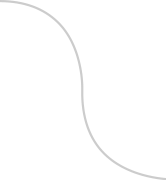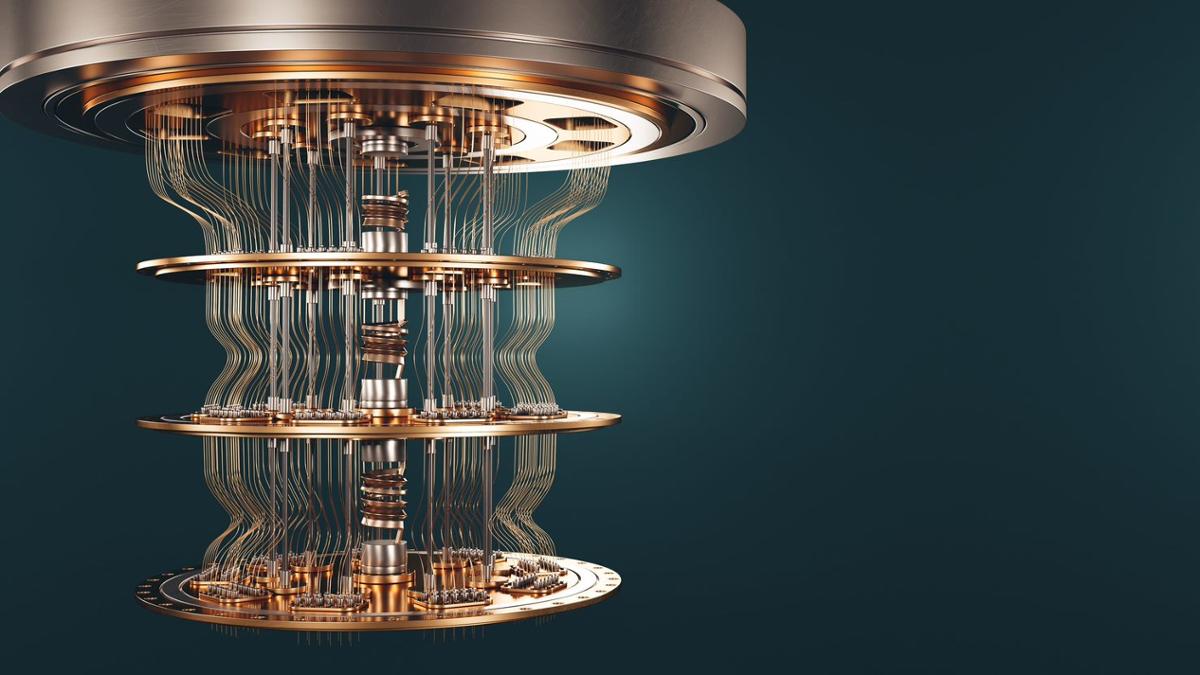| |
|
|
 |
 |
|
| Shaping the future |
| december 2024 |
|
|
|
|
 |
|
|
|
|
| |
| Which (new) technologies are emerging? And what impact will those new technologies have on education and research? SURF shares an overview of important developments, projects and activities in this futuring update (Dutch below). |
|
|
 |
| Quantum technology is knocking on our door, what does that mean? by Axel Berg, manager SURF Innovation Labs |
| Every Saturday you can read something about quantum technology in a newspaper. As an example: the United Nations has declared 2025 as the International Year of Quantum. Also SURF was recently in the news on this topic. This regarding hosting a European quantum computer linked to the Snellius supercomputer. At SURF, we are also taking the first steps for the pilot implementation of a Quantum Key Distribution service. But what does that mean? How mature is this technology, and can you really do something with it? The core of the answer is: 'We are getting quantum ready', seen from both the operation and the application. Quantum technology is now taking its first steps from research labs to real operational service environments. The next 3-5 years will be a phase of mainly learning and gaining experience. In this way, we prepare for the next phase in which quantum technology becomes available on a scale that really offers us the great added value we expect. Want to know more? |
|
|
|
|
|
|
|
| SURF develops immersive research environment for cultural heritage |
| Imagine stepping into a virtual museum, where you can explore historical artifacts as if they're right in front of you. Instead of reading about them in books or searching archives, you’re interacting with these objects directly, asking questions, and getting instant, detailed answers. This vision is now possible thanks to SURF’s immersive research environment, combining the power of extended reality and large language models to transform how we experience and study cultural heritage. |
| Read more |
|
|
|
|
|
|
| New whitepaper on neuromorphic computing – the key to sustainable technology |
| How can we make computers 10,000 times more energy efficient? The whitepaper ‘Neuromorphic Computing in the Netherlands’ explores how technologies inspired by the human brain can contribute to more sustainable ict. Read more about the neuromorphic computing community in the Netherlands and the call for national collaboration. |
| Download the whitepaper |
|
|
|
|
|
|
| SURF collaborates with students on neuromorphic and quantum computing challenges |
| Which is more sustainable: quantum computing or neuromorphic computing? And how can we establish a more sustainable data center, including an AI factory? These two challenges were tackled in collaboration with 28 first-year students from the Computational Social Science program. |
| Read more |
|
|
|
|
|
|
| How Quantum Key Distribution improves security: call for co-creation! |
| Quantum computers pose a threat to current data encryption; it could be unsufficient within ten years. This puts sensitive data and intellectual property in the research and education sector at risk. That's why we invite our members to explore solutions for secure communications together. |
| Read more |
|
|
|
|
|
|
| Cyber Threat Assessment 2024 |
| During cybersecurity month, SURF publishes a special edition of the Cyber Threat Assessment. It offers educational and research institutions valuable insights from the past ten editions. In addition to interviews with notable figures, the report also provides a forward-looking view of the threats and opportunities ahead, including the impact of AI. AI is expected to influence the speed of the race between threats and measures. The essence of cybersecurity work will remain the same; people will remain the most important link. Therefore, a more alert and flexible approach to cybersecurity is more important than ever. |
| Read more |
|
|
|
|
|
|
| Futuring practice – de Nationale toekomstcursus |
| The National Futures thinking course is live! The aim of this course is to show how we shape our own and the collective future. STT developed this course with Roanne van der Vorst (UvA), Derek Jan Loorbach (EUR), Loes Damhof (Hanze hogeschool) en Tessa Cramer (Fontys hogeschool). |
| Discover this course (In Dutch) |
|
|
|
|
|
|
| Interesting news and reports |
|
|
|
|
|
|
| Welke (nieuwe) technologieën komen eraan? En welke impact hebben die nieuwe technologieën op het onderwijs en onderzoek? SURF deelt een overzicht van belangrijke ontwikkelingen, projecten en activiteiten in deze futuring-update. |
|
|
 |
| Quantum technologie klopt op onze deur, wat betekent dat? door Axel Berg, manager SURF Innovation Labs |
| Elke zaterdag kun je wel in een krant iets lezen over quantumtechnologie. Zo heeft de Verenigde Naties 2025 uitgeroepen tot het Internationale Jaar van Quantum. Ook SURF was recent in het nieuws over dit onderwerp, vanwege de hosting van een Europese quantumcomputer die wordt gekoppeld aan de supercomputer Snellius. We zetten als SURF ook de eerste stappen voor de pilotimplementatie van een Quantum Key Distributie service. Maar wat betekent dat? Hoe volwassen is deze technologie, en kun je er al echt wat mee? De kern van het antwoord is: ‘We are getting quantum ready’, zowel gezien vanuit de operatie als vanuit de toepassing. Quantumtechnologie maakt nu eerste stappen van de research labs naar echte operationele service-omgevingen. De komende 3-5 jaar is de fase van vooral veel leren en ervaring opdoen. Zo bereiden we ons voor op de volgende fase waarin quantumtechnologie op een schaal beschikbaar komt die ons echt de grote meerwaarde biedt die we verwachten. |
|
|
|
|
|
| Nieuwe whitepaper: neuromorphic computing als sleutel tot duurzame technologie |
|
Hoe kunnen we computers 10.000 keer energiezuiniger maken? De whitepaper ‘Neuromorphic Computing in the Netherlands’ verkent hoe technologieën die geïnspireerd zijn op de werking van het menselijk brein, kunnen bijdragen aan duurzamere ict. Lees meer over de sterke community rondom neuromorphic computing in Nederland en de oproep tot nationale samenwerking.
|
| Download whitepaper |
|
|
|
| SURF werkt samen met studenten aan vraagstukken rondom neuromorphic en quantum computing |
| Wat is duurzamer, quantumcomputing of neuromorphic computing? En hoe kunnen we op duurzame wijze een nieuw datacenter inclusief AI-factory realiseren? Met deze twee uitdagingen gingen we samen met een groep van circa 30 eerstejaarsstudenten van de opleiding Computational Social Science aan de slag. |
| Lees meer |
|
|
|
| Hoe Quantum Key Distribution de beveiliging verbetert: call voor co-creatie! |
| Quantumcomputers vormen een bedreiging voor de huidige encryptie van data; die kan binnen nu en tien jaar ontoereikend zijn. Dit brengt gevoelige data en intellectueel eigendom in de onderzoeks- en onderwijssector in gevaar. Daarom nodigen we onze leden uit om samen oplossingen voor veilige communicatie te verkennen. |
| Lees meer |
|
|
|
| SURF ontwikkelt immersieve onderzoeksomgeving voor cultureel erfgoed |
| Stel je voor dat je een virtueel museum binnenwandelt, waar je historische voorwerpen kunt onderzoeken alsof ze fysiek voor je staan. In plaats van alleen over de objecten te lezen in boeken of archieven door te spitten, heb je direct interactie met de objecten, stel je vragen en krijg je gedetailleerde antwoorden. Dit is nu mogelijk dankzij de immersieve onderzoeksomgeving van SURF, die extended reality (XR) en large language models (LLM's) combineert om de manier waarop we cultureel erfgoed beleven en bestuderen fundamenteel te veranderen. |
| Lees verder |
|
|
|
| Cyberdreigingsbeeld 2024 |
| Tijdens de cybersecuritymaand publiceert SURF een speciale editie van het Cyberdreigingsbeeld. Het biedt onderwijs- en onderzoeksinstellingen waardevolle inzichten uit de afgelopen tien edities. Naast interviews met bekende namen bevat het rapport ook een vooruitblik op de dreigingen en kansen die op ons afkomen, waaronder de impact van AI. De verwachting is dat AI invloed zal hebben op de snelheid van de wedloop tussen dreigingen en maatregelen. De essentie van cybersecurity-werk zal hetzelfde blijven; mensen blijven de belangrijkste schakel. Daarom is een alertere en flexibelere aanpak van cybersecurity belangrijker dan ooit. |
| Lees verder |
|
|
|
| Futuring practice – de Nationale toekomstcursus |
| De nationale toekomstcursus is gelanceerd! Het doel van deze cursus is om te laten zien op welke wijze we invloed kunnen hebben op onze eigen toekomst én op onze gezamenlijke toekomst. STT heeft in samenwerking met o.a. Roanne van der Vorst (UvA), Derek Jan Loorbach (EUR), Loes Damhof (Hanze hogeschool) en Tessa Cramer (Fontys hogeschool). |
| Start de toekomstcursus |
|
|
|
|
 |
| Vragen, tips of inspiratie? Neem contact met ons op |
|
|
| Volg SURF |
|
|
|
 |
| Je ontvangt deze nieuwsbrief op omdat je je daarvoor aangemeld hebt. Je kunt je altijd afmelden. |
|
|